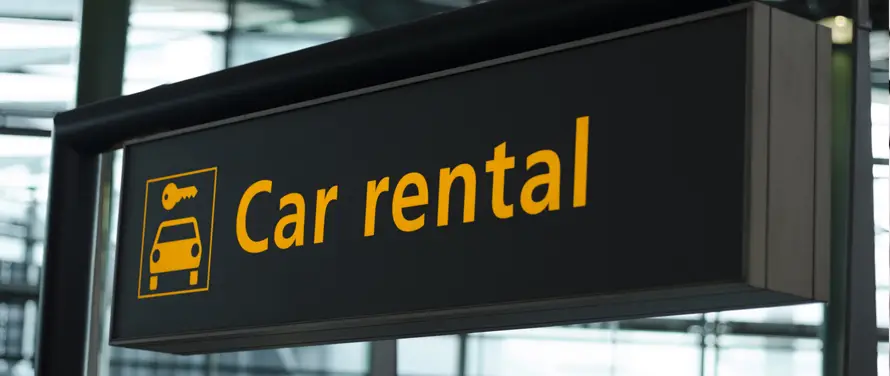Motor Vehicle Accident Liability
Motor Vehicle Accident Liability When you suffer an injury in an auto accident caused by someone else, you have a legal right to seek compensation
TrafficAccidents.com is a free resource and guide for those who have suffered an injury caused by a traffic accident and don’t how to receive compensation.

The Graves Amendment is a federal law that regulates when an accident victim can sue a rental car company. Before the Graves Amendment, accident victims in some states could sue a rental car company for a traffic injury sustained in an auto accident with someone who was driving a rented vehicle.
The Graves Amendment removed this option. Regardless of the state you live in, federal law now says that accident victims can only sue rental car companies in narrow situations that do not apply to most traffic accidents.
Here is some information about the Graves Amendment and how it affects the way you file a lawsuit in a traffic accident caused by the driver of a rental vehicle.
Before explaining what the Graves Amendment does, it’s important to understand vicarious liability.
In most situations, people and businesses only have liability for their negligent or criminal actions. Suppose that a driver caused a car accident by speeding and texting while driving. Each person who suffered an auto injury in the accident would pursue compensation from the at-fault driver.
But in some situations, you can or must sue someone besides the at-fault driver. These situations arise when another person or business has vicarious liability for the actions of the at-fault driver.
For example:
This liability exists regardless of fault. So parents may have liability for a traffic accident caused by their child, even if they were not negligent in giving the car keys to the child.
Some states applied their vicarious liability case precedents to rental car companies. These states allowed accident victims to hold companies liable for an auto accident caused by one of their vehicles.
The rental car companies lobbied Congress to pass a uniform law that would cover them regardless of the location of the accident. Of course, their preference was to have a uniform rule that eliminated vicarious liability. Representative Sam Graves from Missouri accommodated them.
When the Graves Amendment passed in 2005, the federal law superseded state laws. It eliminated vicarious liability for rental car companies for any traffic injury caused by their cars with two exceptions:
An accident victim can still sue the rental company if its negligence contributed to the motor vehicle accident. Some examples of rental company negligence include:
In other words, an accident victim cannot sue a car rental company for a renter’s negligence. But the victim can sue the company for its negligence.
Suppose that a car rental company failed to detect that a renter’s driver’s license had been suspended for DUI. An injured victim could sue the rental company for auto accident compensation after an accident with the renter.
An accident victim can sue a rental company for an auto injury that resulted from the company’s criminal wrongdoing. Courts have not decided any cases in which accident victims alleged criminal wrongdoing. But some examples that could support a claim include:
The Graves Amendment does not shield rental companies from criminal activities. As a result, an injured person can sue the rental company if they sustain an injury due to the rental company’s crimes.
Rental companies offer insurance to renters. A renter may decline the rental insurance and rely on their auto insurance. In either case, you can pursue auto accident compensation from the insurance companies after an accident involving the rental car.
The Graves Amendment comes into play when the renter lacks insurance. In this situation, the driver bears the primary financial responsibility for your injuries. You will need to sue someone who might not have any resources to cover your damages.
Instead, an accident attorney might look into whether you can get auto accident compensation from the rental company. This will require the lawyer to investigate whether the rental company acted negligently or criminally. If the rental company has liability for its actions, you can sue the company, along with the at-fault driver.
To discuss how the Graves Amendment might affect your rental car auto accident, complete our online consultation form or call us today. We’ll help to match you with a lawyer that can explore your legal options.
Motor Vehicle Accident Liability When you suffer an injury in an auto accident caused by someone else, you have a legal right to seek compensation
Proving Liability in a Traffic Accident Liability for traffic accidents arises from negligence law. This means that not every accident will result in liability. Sometimes,
Contributory vs. Comparative Negligence Are you familiar with the terms “contributory negligence” and “comparative negligence”? If not, you’re not alone. Many people have never heard
COMPLETE THE FORM TO BE CONNECTED WITH AN ACCIDENT ATTORNEY
Thank you for your inquiry but there are no matches for you at this time. Please come back later and try again.